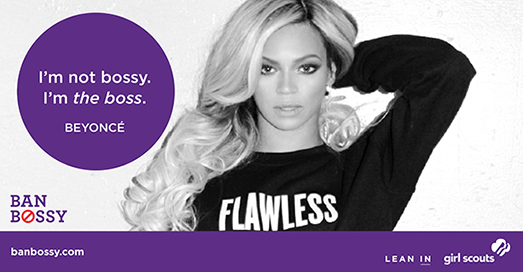Column: Ban Bossy has practical problems
Telling people what they cannot say is a “bossy” thing to do. Yet this is exactly what the “Ban Bossy” campaign prescribes. The campaign aims to eliminate the word “bossy” from our vocabulary, arguing that using this word as a label sends a message to young girls that they should not speak up.
Banbossy.com argues that when boys speak up they are seen as leaders, and when girls speak up they are labeled as bossy. The campaign’s goal is to encourage girls to develop leadership skills without the fear of being labeled as “bossy.”
However, the word “bossy” is a gender-neutral word. It is not applied strictly to females. As many young children grow up, they go through phases where it is appropriate for them to be called “bossy,” whether they are male or female.
Facebook COO Sheryl Sandberg and Girls Leadership Institute co-founder Rachel Simmons are two of the driving forces behind this campaign. On their website, they encourage readers to take the pledge to ban the use of this word or use the hashtag #banbossy to promote this campaign.
If we want to eliminate words that can be hurtful or damaging to young girls, there are many other words that should rise to the top of the list. These derogatory words appear in song lyrics and on social media every day, and certainly with more frequency than the word “bossy.”
Beyoncé, a spokesperson for the campaign, says in a promotional video, “I’m not bossy. I’m the boss.” When she describes herself as “the boss,” Beyoncé does not suddenly appear like more of a leader. She still seems bossy. Or domineering. Or strong-willed. By focusing their campaign on this particular word, this campaign is misguided.
Perhaps the best solution to women being labeled as “bossy” is to refer to more men as “bossy.” Or maybe we should ban the “Ban Bossy” campaign.
The views expressed in this column are solely those of the author, and do not represent the views of The Wooster Blade as a whole.




